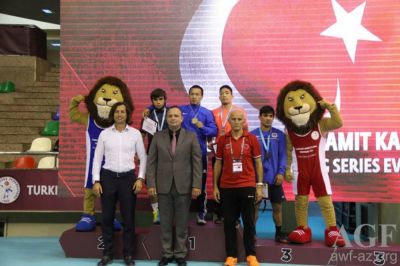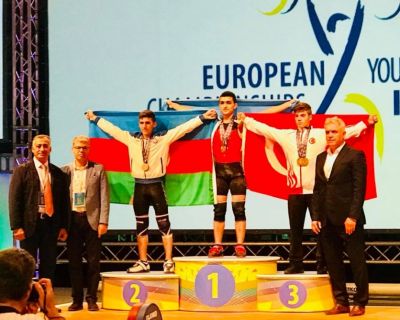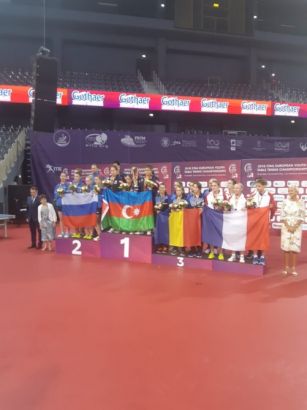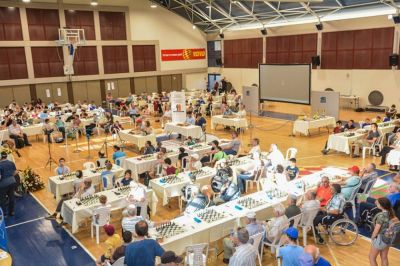12:53Global Ambassador`s Journal publishes article by Azerbaijani ambassador to Spain
12:51Yerevan's controversial statements complicate settlement of Karabakh conflict: expert
12:50SOCAR Energy Georgia to launch multifunctional complex in Georgia
12:50Saudi-led coalition blames Houthi rebels for Yemen port deaths
12:49Oil prices rise amid falling U.S. stockpiles
12:49Azerbaijan, Afghanistan sign protocol on defense industry co-op
12:43Southeast Asian Nations, China Agree on proposal for South China Sea
12:42Group providing clothing, books to migrant children
12:41Apple’s stock value reaches $1 trillion total
12:40Pope Francis says death penalty “Inadmissible”
12:38California's death valley sets new record for hottest month
02.08.201815:54Azerbaijani servicemen in the opening ceremony of the "Masters of artillery fire" contest
12:31Azerbaijan`s Qarabag into UEFA Champions League third qualifying round
12:29Azerbaijani Central Bank`s foreign-exchange reserves increased by 3.9%
12:24Malaria drug may not help children, pregnant Women
12:22McDonald’s celebrates 50th anniversary of Big Mac
12:22Walking high above on Vietnam’s “Golden Bridge”
12:18North Korea returns remains of Korean War Dead to US
01.08.201815:02Time frame of meeting between Azerbaijani, Armenian FMs disclosed
15:01MP: Armenian ex-president to answer for crimes against Azerbaijanis
15:00BTK to have positive impact on developing new transport routes – envoy
14:54Art exposition of young Azerbaijani-American female artists held in Los Angeles
14:5211 foods to eat to help you stay cool
14:47Facebook uncovers fake accounts ahead of midterm elections
14:47Some US colleges offer full scholarships to gamers
14:46Trump considering sales of guns made by 3D Printers
14:44İran rejects Trump’s offer of talks as ‘Humiliation’
31.07.201816:17Azerbaijani defense minister attends several events in Moscow
16:15President Ilham Aliyev received delegation led by EU Special Representative



















